'We need to get on it, yesterday': 3 young climate activists on the provincial election

The four years since the last provincial election have seen plenty of activism led by young people, including the 10,000-person march through downtown Halifax for action on climate change in September 2019.
Greta Thunberg, who turned 18 this year, inspired many young people around the world to press for political change. Statistics Canada estimates more than 60,000 people in Nova Scotia are between the ages of 18 and 24.
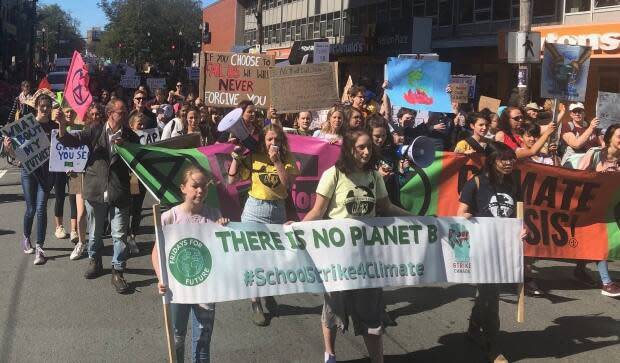
Organizations like Students Nova Scotia are working to get as many of them as possible to pledge they will vote.
Julia Sampson, 19, Willa Fisher, 18, and Emma Goulden, 19, are all Halifax students who participated in the 2019 march for the climate. CBC asked about their views this election. The interview has been edited for length.
CBC: Julia, I know you were calling on lawmakers to make change actually before you were of voting age, and so now that you are able to vote I'm wondering what you're thinking about with this provincial election.
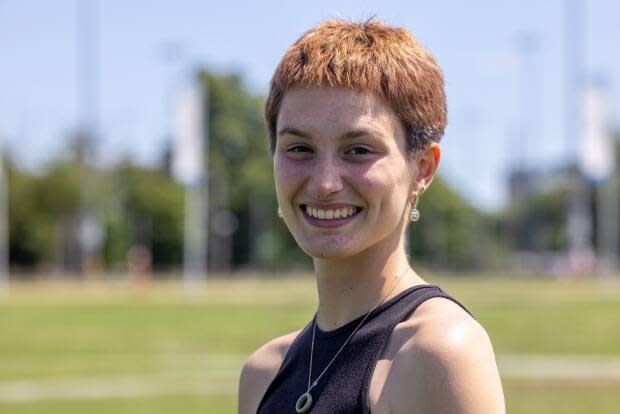
Julia Sampson: Yeah, I'm definitely still thinking about a lot of the same things that I have said in the past. We really need concrete climate action that includes the SDGA [Sustainable Development Goals Act] that the province is currently working on. Those need to have constant, active consultation to make sure that the public is constantly involved in that. And it's what the public is demanding. We need climate action that not only is reducing emissions, but also helping people.
CBC: How about you, Willa? What kind of issues are you thinking about this election?
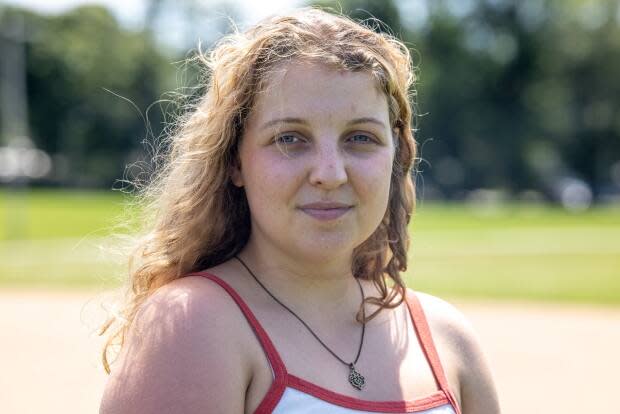
Willa Fisher: I'm thinking a lot about green spaces, actually. I've been thinking a lot about how we need to stop developing more in general. Politicians need to stop using the words economic advancement and progress as something positive, because sometimes they're not positive things. We don't want to be building any more buildings or expanding and building on any more green spaces. And changing our whole mindset around those things is really important, especially in politics.
CBC: Emma, for you, if you were speaking to candidates do you have things that you would ask them or say to them?

Emma Goulden: I think I would ask them just about their general plans for involvement with the community and interaction with the community. I know we've had a lot of conversations with candidates and politicians before, and I think we're definitely looking for one that's open to working with the general population on these decisions...there's a lot of parts of the community that are definitely looking to be heard right now, especially when it comes to space — green space — and building housing, and community in general.
CBC: I think so many people will remember that march [in 2019], ten thousand people in the street. So many of them were high school students at the time. Do you think those people are going to be engaged still?
Julia Sampson: I think they are. I think one of the things that I feel most proud about, about our work with climate strikes is that we really were able to engage youth. And even though, at that time, a lot of us weren't able to vote, we now are.
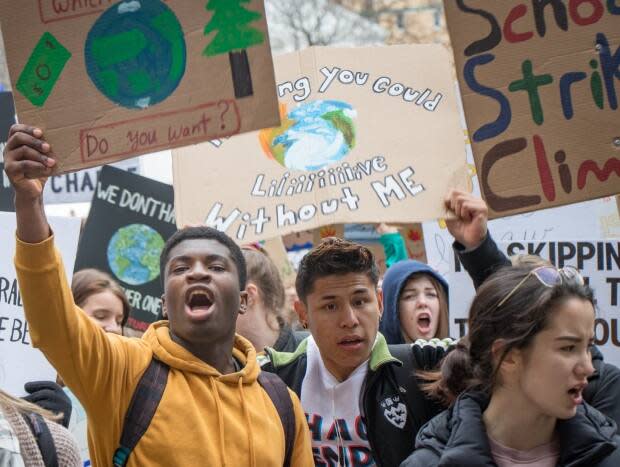
Willa Fisher: We can't just vote and believe that that is going to solve everything, because even politicians who have completely good intentions and really believe in everything that we believe in may not be able to make the changes that they want, that we want. Because it is in a corrupt system and we always have to be pushing for more and always have to be remembering that we have to do more all the time.
CBC: Maybe we could go into that a bit more. When you say a corrupt system, what do you mean?
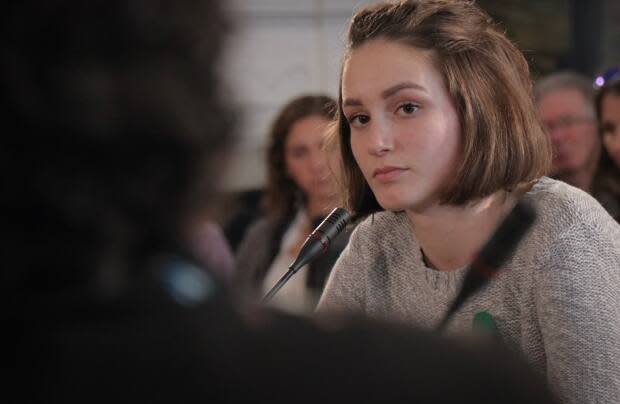
Willa Fisher: Just the effort that it takes to do anything good in the system to make any changes. Positive changes, really big changes … when we went to the Bill 213 discussions, talking to some of those politicians … they want to make changes. But it's really a lot of work. And just the fact that it takes that much effort to do something which shouldn't really take that much effort. Just the fact that it is that much work is already proof that the system doesn't work. It shouldn't be this hard to make change for the better.
CBC: Does that discourage you?
Julia Sampson: Yeah, yeah, a lot. That day when we were in the legislature, I was like, oh my goodness, I'm doing my part. I'm able to actually speak to the people who are making change. I left that day not feeling any better. I felt like they weren't listening.
CBC: But despite that discouraging experience, you're all still encouraging people to vote.
Willa Fisher: Yeah, I think there's a certain amount to say that, you know, just because we don't agree with the system does not mean that we shouldn't still try to participate in any positive way that we can.

